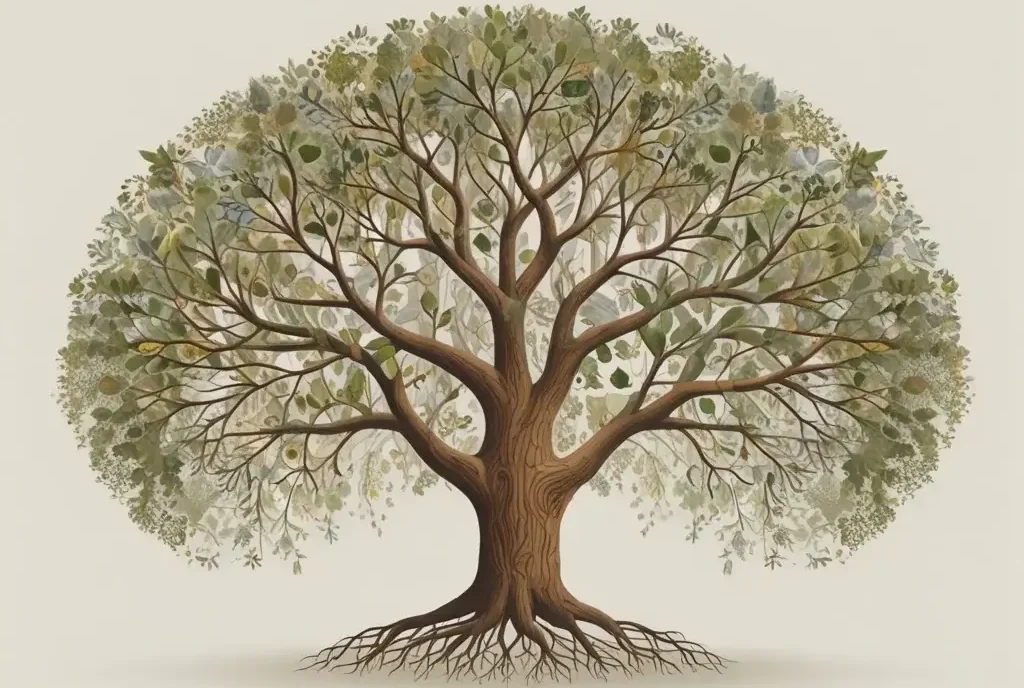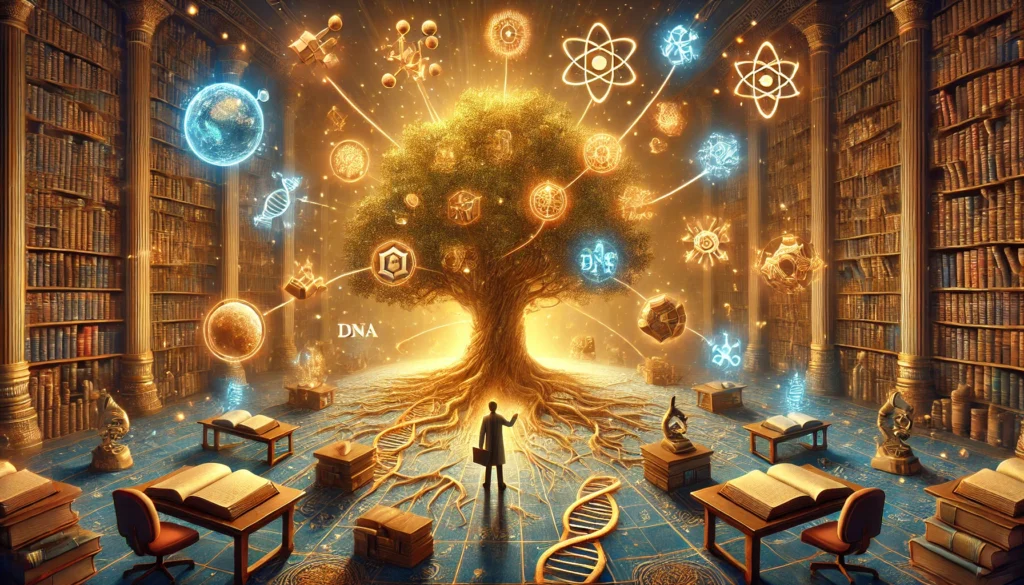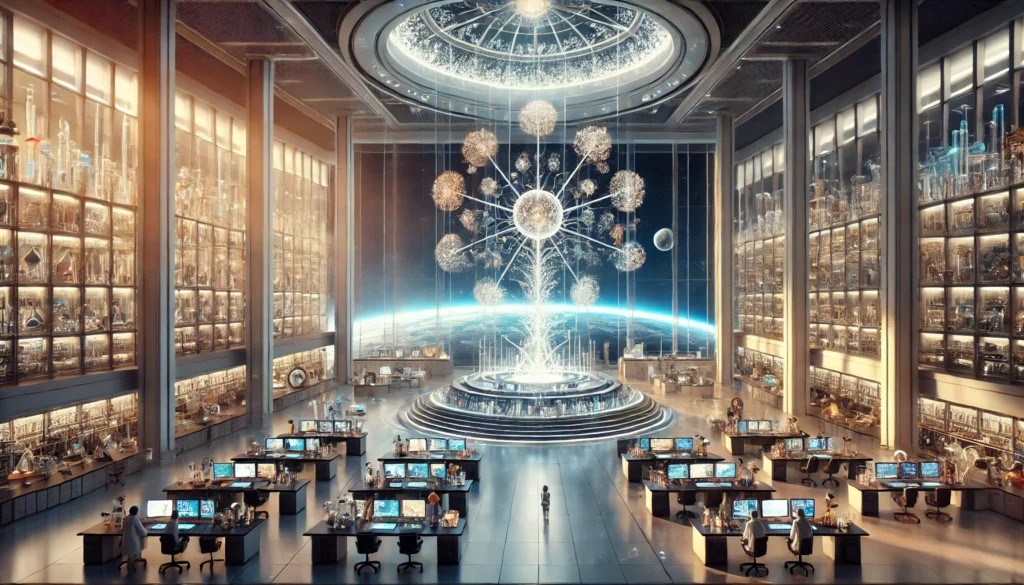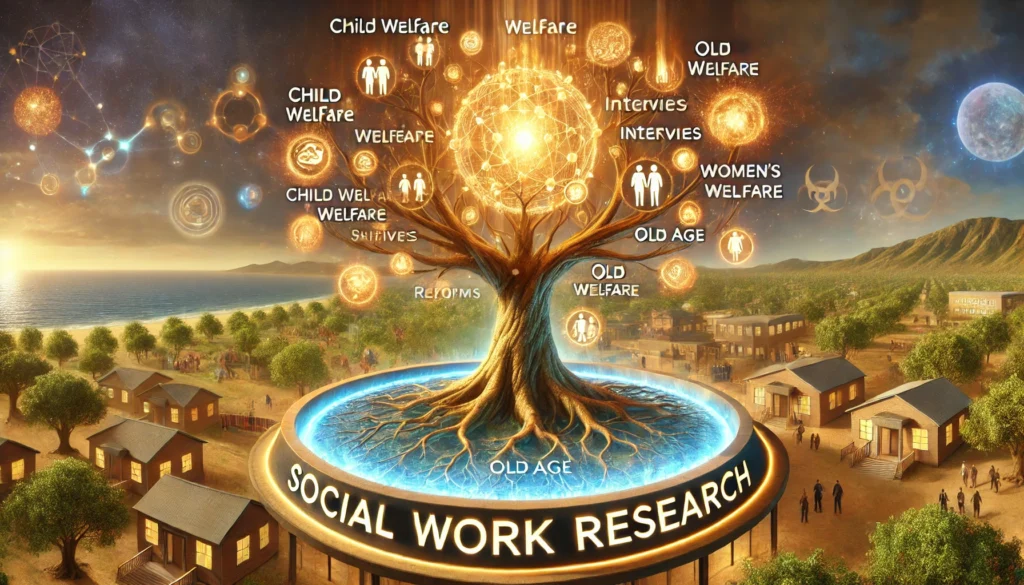Scientific research involves the process of asking questions about the world and subsequently obtaining answers through careful investigation. This typically entails gathering data through experiments or observation and subsequently analyzing it to gain a deeper understanding of the functioning of phenomena. The primary objective is to enhance our knowledge and comprehension of the world.
1. Meaning of Scientific Research
“Scientific research is based on principles and procedure for the systematic pursuit for knowledge, involving the formulation and recognition of a problem, engaging in data collection through observation and experimentation, as well as developing and testing hypotheses”. Scientific research comprises inquiries, observations, and experiments.
It seeks to utilize them for investigating the causes of diverse phenomena. It is essential to recognize that scientific study does not yield definitive solutions to questions; rather, it offers possible responses based on evidence derived from existing knowledge. New information might result in the rejection of concepts previously regarded as true. Scientific research functions on two different levels: a theoretical and an empirical;
Levels of Scientific Research
The theoretical level focuses on creating abstract concepts about a natural or social phenomenon and the relationships between them, known as “theories.” The empirical level focuses on testing these theoretical concepts and relationships to see how accurately they match our observations of reality, all in the pursuit of developing theories.
Forms of Scientific Inquiry
Scientific inquiry may manifest in one of two forms: inductive or deductive, depending upon the researcher’s expertise and interests. In inductive research, a researcher aims to derive theoretical concepts and patterns from empirical evidence. The process starts with data collecting and the identification of patterns to formulate new ideas or hypotheses.
The objective of deductive research is to evaluate established concepts and patterns derived from theory through the application of fresh empirical evidence. Consequently, inductive research is referred to as theory-building research, whereas deductive research is termed theory-testing research. It is important to recognize that the objective of theory-testing extends beyond mere evaluation; it encompasses the potential to develop, enhance, and expand the theory.
Inductive and deductive research are integral components of the research cycle that continually fluctuate between theory and observations. Inductive or deductive research is unfeasible without a thorough understanding of both theoretical and data elements of research. Theory-building (inductive research) and theory testing (deductive research) are both essential for scientific development. Well-constructed ideas lack value if they do not align with reality. Similarly, vast amounts of data are rendered ineffectual unless they may aid in the formulation of meaningful theories.
Inductive Reasoning
Knowledge acquired from sensory experiences that begins with specific observations and subsequently formulates a broader conclusion. It is referred to as ’empiricism.’
Deductive Reasoning
Knowledge acquired by reasoning that starts with generic assertions (premises) and, following logical argumentation, arrives at a specific conclusion, is referred to as ‘rationalism’.

Inductive and deductive research are both crucial for scientific progress; however, inductive (theory-building) research is particularly beneficial when there are limited existing theories or explanations, whereas deductive (theory-testing) research is more effective when numerous competing theories exist regarding the same phenomenon, and researchers seek to determine which theory is most effective and under what conditions.
Theory and Observations
Theories and observations constitute the two fundamental foundations of science. With time, a theory becomes increasingly refined, aligning more closely with observable reality, and the science attains maturity. Scientific inquiry requires a constant swing between theories and observations. Theory and observations are integral elements of scientific investigation. For example, it is not regarded as legitimate scientific inquiry to ignore theory and make conclusions just from observations.

Skills for Scientific Research
In contrast to theories in the natural sciences, theories in social sciences often lack perfection, presenting numerous opportunities for researchers to enhance existing theories or develop their own alternative frameworks. Conducting scientific research needs two distinct skill sets: theoretical and methodological, which are essential for functioning at both the theoretical and empirical levels.
Methodological skills are generally consistent across various fields, remain stable, and can be readily obtained through doctoral programs. However, theoretical skills (“know-what”) are significantly more challenging to master, necessitating years of observation and reflection. These are tacit skills that cannot be “taught” but rather acquired through experience. The most prominent scientists throughout history, including Galileo, Newton, Einstein, Niels Bohr, Adam Smith, Charles Darwin, and Herbert Simon, were exceptional theoreticians.
They are recognized for the revolutionary theories they proposed, which significantly altered the direction of scientific advancement. Methodological skills are essential for a standard researcher, while theoretical skills are crucial for an exceptional researcher (Anol Bhattacherjee, 2012).
The following are the essential skills required for conducting scientific research:
Critical Thinking
Curiosity and a healthy dose of questioning are essential for thriving in social science research. This skill requires the ability to develop concise research questions, analyze existing information on the subject, and identify areas where your study can contribute.
Thoroughly assessing current theories and research methods is crucial, as it allows for the acknowledgment of their strengths and weaknesses, which creates a solid foundation for your investigation.
Development of Research Design
Transforming your research question into a practical plan demands a solid comprehension of the research design. This involves choosing the most appropriate techniques for data collection, including surveys, interviews, experiments, or archival analysis. It is important to take into account factors such as sample size, sampling techniques, and potential biases in order to ensure that your research produces reliable and generalizable results.

Data Collection and Interpretation
The collection of significant data is an essential component of social science research. Achieving proficiency in diverse data collection methods is essential, including the design of surveys, the execution of thorough interviews, and the careful observation of social interactions. For this purpose, it is essential to develop strong analytical skills in order to interpret data effectively, identify patterns, and draw insightful conclusions.
Report Writing and Presentation
Effective communication is crucial in social science research. Developing strong writing skills is crucial for effectively communicating your findings in research papers, reports, and grant proposals. However, it’s important to recognize the impact of visual communication. Having an excellent understanding of visualizing data through graphs and charts can significantly boost the effectiveness of your research.
Anonymity and Confidentiality
Conducting social science research carries a significant responsibility to ensure ethical practices. This includes ensuring that participants give their informed consent, safeguarding their anonymity and confidentiality, and being aware of any potential power imbalances. Being transparent regarding any limitations or biases in your research is crucial, as it upholds the integrity and credibility of your findings.
Conclusion: Meaning of Scientific Research
Science is an ongoing dialogue between reality (facts) and our best estimates (theories). Our theories are constructed to account for what we observe, and their viability is then thoroughly tested. Fresh data can compel us to revise our preexisting theories or inspire whole new ones. Science advances and deepens our understanding of the cosmos through this dynamic dance between hypothesis and evidence.






